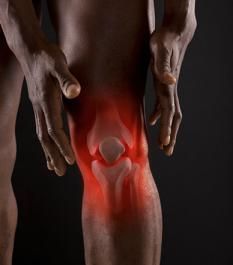Joint Pain Could Affect Your Lover's Sleep, Study Finds

Feeling empathy toward another person is what makes us as human beings stand out from other animals. Many people believe that when two people are deeply connected emotionally, they are able to feel each other's emotions.
A new study published in the journal Pain conducted by researchers at Penn State, Duke University, the University of Pittsburgh, and Kent State University discovered that the pain of one spouse can not only impair the second spouse's sleep, but also affect their ability to show support and empathy for the spouse in pain.
Dr. Lynn Martire, author of the study found that "spouses whose sleep is compromised may be less able to respond empathically to patients' symptoms and need for support," which also puts them at a greater risk for "physical and psychiatric problems."
It was found that the greater a person’s knee pain was at the end of the day the poorer the sleep quality experienced by their spouse that night.
Conversely, if a spouse did not have a good night's sleep, there was no increase in pain experienced by the spouse with knee pain.
"We know that pain affects the spouse's emotional well being, and that over time it takes a toll on the relationship, but until now we did not know the extent to which pain affects spouse sleep," said Lynn Martire, "Getting adequate sleep is important for maintaining long-term health."
The study was comprised of interviews of 138 knee osteoarthritis (OA) patients and their spouses, all of whom kept diaries over 22 days. The subjects were all at least 50 years of age, lived with their partners, and were either in long-term relationships or married.
Knee pain was chosen as the focus because it’s a painful condition that affects the sleep of many Americans. In 2006, the Centers for Disease Control and Prevention (CDC) found that knee pain is the number one joint pain among Americans; shoulder, finger, and hip pain follow closely behind.
Researchers are also interested in finding out more about how pain affects the spouses other physiological changes.
Source: Wilson SJ, Martire LM, Keefe FJ, Mogle JA, Stephens MA, Schulz R. Daily verbal and nonverbal expression of osteoarthritis pain and spouse responses. Pain. 2013.



























